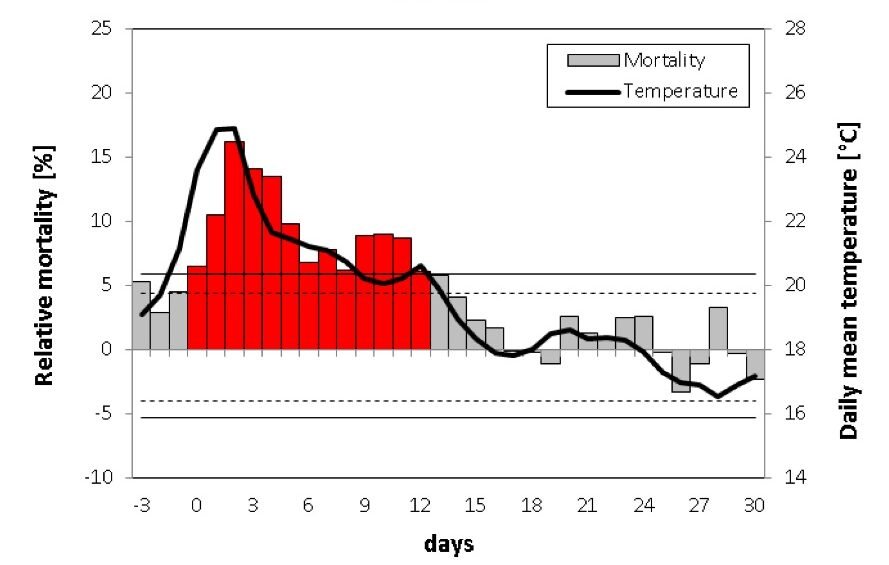Although we have been spared the worst of the hot summer weather thus far in Daylesford and Hepburn Springs, last month was the third hottest January on record in Australia. Heatwaves are becoming more frequent, more intense, and longer-lasting and our health is at risk as a result.
Children and elderly people are particularly at risk. Children are vulnerable because their heat regulation systems are immature and because they depend for protection on adults who may not be sufficiently aware of their particular needs.
Elderly adults are vulnerable because of stress on their hearts. When we are hot, more blood is directed to the skin to assist with heat dissipation. We also tend to get dehydrated because of increased sweating which can cause a decrease in blood pressure. Both of these factors increase the work of the heart. On average, heatwaves cause an 11.7 per cent increase in cardiovascular disease related deaths.
Because our Shire is relatively old with a median age of 52, a larger proportion of our community is at risk in heatwave conditions.
“People with cardiac conditions may be more prone to the adverse effects of extreme heat,” said Dr Hui-Chen Han, cardiologist and researcher at the Victorian Heart Hospital and Monash Victorian Heart Institute. “Certain cardiac medications can increase a person’s risk of developing dehydration. It may be useful to discuss with your doctor about possible medication plans in times of extreme heat.”
“It is important to be familiar with potential warning signs that may indicate heat stress, such as feeling dizzy, having a rapid pulse, or experiencing nausea,” said Associate Professor Zerina Lokmic-Tomkins from the Monash School of Nursing and Midwifery. “If you encounter any of these symptoms, especially if you have a pre-existing heart condition, please seek medical attention without delay. Seeking help early ensures a timely assessment and management of your health concerns.”
She also stressed the importance of looking out for vulnerable people in the community. “In times of heatwaves, community solidarity becomes crucial. I encourage each of us to check in on vulnerable members of our community, particularly the elderly or those with heart problems. We need to support each other during these challenging times.”
The Monash Victorian Heart Institute has prepared fact sheets for communities and health professionals that outline how to prepare for and deal with extreme heat. Some of the tips include:
- If you take medicines for a heart condition, your doctor might need to adjust them.
- Store medicines correctly in a dry or cool place.
- Check on people who are isolated or might need help, especially if they have a heart condition or other chronic condition like diabetes.
- Ensure electric life-saving medical equipment is registered with your energy supplier.
- Limit the time spent outside when it’s hot; try to organise activities early in the morning or later in the evening.
- Stay indoors and use an electric fan or air conditioner.
- When outside, stick to the shade where possible.
- Wear loose, light-coloured clothing.
- Reduce physical activity when it’s hot and take breaks often.
- Avoid being outdoors when the sun is at its strongest (about noon to 3pm).
- Eat small easy to digest meals such as fruit, salads or sandwiches; avoid using hot appliances.
- Stay hydrated. Drink plenty of fluids.
This article is based on a media release from Monash University.





